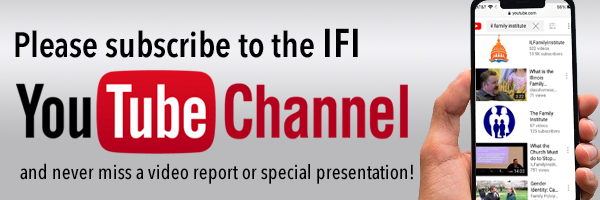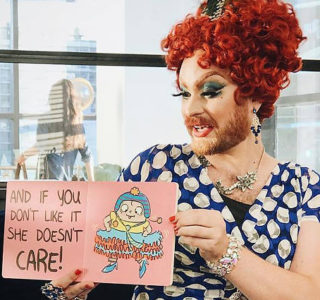Taxpayer-Funded Libraries Defend Obscenity, Child Corruption and Censorship
**Reader Discretion Strongly Advised**
How many times have conservatives heard “progressives” claim that the controversial, obscene material they want taught to children is “age-appropriate”? Now, how many times have your heard conservatives respond by demanding to know specifically what criteria are used to determine “appropriateness”—age or any other kind? How many times have you heard conservatives demand to know specifically who socially constructed the criteria used to determine appropriateness and specifically which teacher suggested that a controversial, obscene book or play be taught?
Taxpayers are entitled to know the criteria, names of creators of criteria, and names of teachers who choose controversial, obscene material. Concealment facilitates unethical behavior among teachers and breeds distrust among taxpayers. Transparency fosters trust and accountability. Government school teachers who are paid by the public want absolute autonomy and absolute anonymity, and that is why we now have adults introducing obscene material to other people’s children.
As an example, here are several writing prompts for high school students in Hudson, Ohio. These prompts prompt children to use their imaginations to focus on sexual immorality and violence:
- Write a sex scene you wouldn’t show your mom. Rewrite the sex scene into one you would let your mom read.
- You have just been caught in bed by a jealous spouse. How will you talk your way out of this?
- Write a sermon for a beloved preacher who has been caught in a sex scandal.
- You are a serial killer. What tv shows are on your DVR list? Why?
- Describe a time when you wanted to orgasm but couldn’t.
- Write an X-rated Disney scenario.
No worries, rationalize supporters, these are just a few prompts from among the hundreds offered in a book of prompts that taxpayers subsidized. And anyway, such prompts appeal to teens and gets their creative juices flowing—or so rationalize the creepy adults who eye little children with bad intent.
(As an aside, weren’t those Hudson, Ohio teachers able to come up with writing prompts on their own? Isn’t that what they’re paid for?)
Many parents don’t realize that appealing to the sensibilities and appetites of adolescents assumed a dominant place in the selection process of English teachers decades ago. There’s another word for capitulating to the tastes of adolescents: it’s called pandering.
Schools should teach those texts that students will likely not read on their own. Schools should teach those texts that are intellectually challenging and offer insight, wisdom, beauty, and truth. Schools should avoid those that are highly polemical, blasphemous, and vulgar.
These writing prompts embody the perverse obsession with sex that many authors who write Young Adult (YA) novels share, that change-agents teach, and that government schools purchase with limited taxpayer funds.
Here are some quotes from The Perks of Being a Wallflower, which is found in most middle school libraries and recommended and taught in many classrooms:
- I guess I forgot to mention in my last letter that it was Patrick who told me about masturbation. I guess I forgot to tell you how often I do it now, which is a lot. … I started using blankets, but then the blankets hurt, so I started using pillows, but then the pillows hurt, so I went back to [the] normal [way].
- And the boy kept working up the girl’s shirt, and as much as she said no, he kept working it. After a few minutes, she stopped protesting, and he pulled her shirt off, and she had a white bra on with lace. … Pretty soon, he took off her bra and started to kiss her breasts. And then he put his hand down her pants, and she started moaning. … He reached to take off her pants, but she started crying really hard, so he reached for his own. He pulled his pants and underwear down to his knees. After a few minutes, the boy pushed the girl’s head down, and she started to kiss his p****. She was still crying. Finally, she stopped crying because he put his p**** in her mouth, and I don’t think you can cry in that position.
- When most people left, Brad and Patrick went into Patrick’s room. They had sex for the first time that night. I don’t want to go into detail about it, because it’s pretty private stuff, but I will say that Brad assumed the role of the girl in terms of where you put things.
- One night Patrick took me to this park where men go and find each other. Patrick told me that if I didn’t want to be bothered by anyone that I should just not make eye contact. He said that eye contact is how you agree to fool around anonymously. Nobody talks. They just find places to go. After a while, Patrick saw someone he liked.
In the face of criticism, those who rationalize teaching obscene, pro-“LGBTQ+” novels to adolescents roll their condescending eyes and call those who object to such material it prudes who take words out of context. But there is no context that renders graphic sex acceptable in texts purchased with public funds and taught to minor children.
Here are some more out-of-context quotes, these from the novel Lawn Boy by Jonathan Evison—another YA book in school libraries–a coming-of-age novel in which the protagonist begins to feel fulfilled only after he embraces a homosexual identity and which includes obscenity like “f**k” and “s**t” on virtually every page:
- “G**damn-f**king-c**t-f**k-s**t-ass-f**ker!” I yelled.
- “What if I told you I touched another guy’s d**k? … “What if I told you I s****ed it?” … “I was ten years old, but it’s true. I put Doug Goble’s d**k in my mouth.” … “I was in fourth grade. It was no big deal.” … “He s***ed mine, too.” … “And you know what? … “It wasn’t terrible.”
I wonder if a coming-of-age novel in which a young adult who experiences unchosen homoerotic attraction finds fulfillment once he rejects homoerotic relationships could get published, positively reviewed, and purchased for school libraries.
Saturday Oct. 2, 2021 marked the end of another “Banned Books Week” sponsored by the sanctimonious, hypocritical, leftist American Library Association (ALA) that regularly violates its own principles of intellectual freedom and has no principles regarding morality.
The ALA makes this disturbing statement:
Library policies and procedures that effectively deny minors equal and equitable access to all library resources available to other users violate the Library Bill of Rights. The American Library Association opposes all attempts to restrict access to library services, materials, and facilities based on the age of library users.
Apparently, to members of the ALA, even five-year-olds should be free to access the porn available on library computers, in books, and in magazines.
The ALA’s Office for Intellectual Freedom claims to oppose the proscription of materials based on “partisan disapproval”:
Books and other library resources should be provided for the interest, information, and enlightenment of all people of the community the library serves. Materials should not be excluded because of the origin, background, or views of those contributing to their creation. Libraries should provide materials and information presenting all points of view on current and historical issues. Materials should not be proscribed or removed because of partisan or doctrinal disapproval.
If that’s the case, then why are there so few YA novels that depict homosexuality as unhealthy or depict cross-sex identification as disordered?
The ALA tries to divert attention from this obvious hypocrisy by appealing to its own “Collection Development Policies.” But they can’t do their dirty censorship deeds alone. It requires the collusion of publishing companies, book review organizations, and libraries.
“Collection Development Policies”—created by leftists—are used to select which books to purchase. These policies establish what will be considered in selecting which books to buy. Books are chosen based on the “Reputation and qualifications of the author, publisher or producer, with preference generally given to titles vetted in the editing and publishing industry.”
And guess what—leftists control the publishing companies and professional review journals on whom librarians depend for determining which books they will purchase. It’s a nice circular set-up that enables leftists to conceal their bias and book-banning.
That may explain why Wheaton North High School in Wheaton, Illinois carries the obscene comic book “graphic novel” Gender Queer by Maia Kobabe but doesn’t carry either When Harry Became Sally by Ryan T. Anderson or Irreparable Damage by Wall Street Journal reporter Abigail Shrier.
And it likely explains why school and community libraries all around the country carry the picture book I Am Jazz and numerous other picture books affirming cross-dressing in children. But how many carry the books I’m Glad God Made Me a Girl by Denise Shick, whose father began masquerading as a woman when Ms. Shick was a child, thereby causing her untold suffering.
What becomes obscured in all these discussions of book-banning or selection criteria is the egregious offense of using public money to subsidize curricula and activities that undermine many taxpayers’ deepest beliefs and morals.
Listen to this article read by Laurie:
https://staging.illinoisfamily.org/wp-content/uploads/2021/10/Taxpayer-Funded-Libraries-Defend-Obscenity-Child-Corruption-and-Censorship.mp3



 The ALA pursues its hysteria-fomenting goal chiefly by ridiculing parents who, for example, don’t want their five-year-olds seeing books about children or anthropomorphized animals being raised by parents in homoerotic relationships. Scorn will be heaped on parents who hold the unpopular belief that homoeroticism and cross-dressing—even when presented in whitewashed, water-colored images—don’t belong in the picture books section of public libraries.
The ALA pursues its hysteria-fomenting goal chiefly by ridiculing parents who, for example, don’t want their five-year-olds seeing books about children or anthropomorphized animals being raised by parents in homoerotic relationships. Scorn will be heaped on parents who hold the unpopular belief that homoeroticism and cross-dressing—even when presented in whitewashed, water-colored images—don’t belong in the picture books section of public libraries.